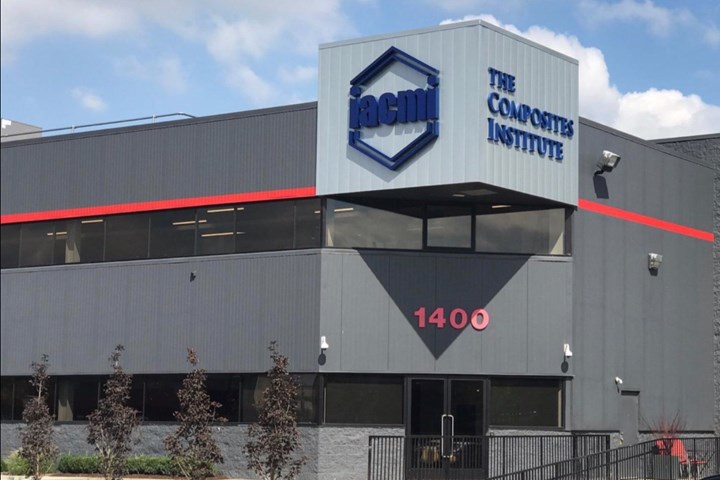DOE announces funding for projects supporting composites for vehicle applications
Composite recipients Ford and GM will develop a multi-functional cross-car beam and volume manufacturing of structural battery enclosures.

IACMI’s Scale Up Research Facility in Detroit managed and operated Michigan State University. Source | IACMI
On July 16, U.S. Secretary of Energy Dan Brouillette announced that the DOE Office of Energy Efficiency and Renewable Energy (EERE) will fund $139 million for 55 projects across the country that will support new and innovative advanced vehicle technologies across 16 topic areas. Among the projects announced, the Vehicle Technologies Office (VTO) and EERE’s Advanced Manufacturing Office (AMO) are collaborating on two projects, led by General Motors LLC (Detriot, Mich., U.S.) and Ford Motors Co. (Dearborn, Mich., U.S.), respectively, totaling $15 million aimed at lightweight and high-performance fiber-reinforced polymer composites for vehicle applications.
More specifically, Ford, in collaboration with DOE’s Oak Ridge National Laboratory (Knoxville, Tenn., U.S.) and other partners, is receiving up to $7.5 million to develop multi-functional composite structures with electronics integration for cross car beam applications. General Motors will receive the same amount for the development of fiber-reinforced composites for high-volume manufacturing of structural battery enclosures. Michigan State University’s Scale Up Research Facility is partnering with both teams. The facility was established with DOE funding under the Institute for Advanced Composites Manufacturing Innovation (IACMI).
According to the DOE, the project teams will generally conduct research in advanced batteries, electrification and manufacturing in support of DOE’s Energy Storage Grand Challenge, a comprehensive strategy to create and sustain U.S. global leadership in energy storage technology, utilization and exports announced in January 2020.
Selected projects under this funding opportunity will be managed by VTO, whose research pathways focus on fuel diversification, vehicle efficiency, energy storage, lightweight materials and new mobility technologies to improve the overall energy efficiency and affordability of the transportation system.
Other projects pursued will include advancing lithium-ion batteries using silicon-based anodes, improving efficiency for light-duty gasoline engines, medium- and heavy-duty natural gas engines, agricultural off-road vehicles and more. Visit the website for a more comprehensive list.
Related Content
-
Cryo-compressed hydrogen, the best solution for storage and refueling stations?
Cryomotive’s CRYOGAS solution claims the highest storage density, lowest refueling cost and widest operating range without H2 losses while using one-fifth the carbon fiber required in compressed gas tanks.
-
Plant tour: Albany Engineered Composites, Rochester, N.H., U.S.
Efficient, high-quality, well-controlled composites manufacturing at volume is the mantra for this 3D weaving specialist.
-
Bio-based acrylonitrile for carbon fiber manufacture
The quest for a sustainable source of acrylonitrile for carbon fiber manufacture has made the leap from the lab to the market.
















